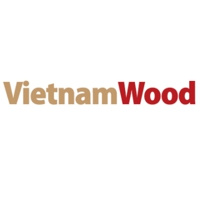
Mr. Ngo Nam Phong in the artichoke garden. Photo: Hai Tien.
According to Mr. Ngo Nam Phong, Director of Thuan Phat Artichoke Cooperative (Da Lat City), Da Lat has many visitors from all over the world, which is very suitable for growing and processing artichokes to sell to tourists. Because in the past, production was fragmented and everyone did it, selling paintings to buy and mainly produce raw products through traders, leading to most of the profits earned from growing artichokes falling into the intermediate stage of processing and distribution. In 2012, Thuan Phat Artichoke Cooperative was born with 13 founding members and 40 hectares of land, cultivated according to the value chain from the field to the consumer. As a result, the income of artichoke-growing households has increased by more than 60% compared to before the cooperative.

Artichokes can be considered as a very good soil-improvement plant. Photo: Hai Tien.
Mr. Ngo Quang Nhan has grown 1.6ha of artichokes for 12 years, but only 2 years, 2020 and 2021, it is difficult to sell products because of the Covid-19 epidemic. The rest, every year, he also earns 2.4-2.9 billion VND from planting and trading artichokes (excluding the cost of materials and hiring more workers). Mr. Nhan has been one of the members who have joined the cooperative since the early days of its establishment.
“The benefit of non-cooperatives is that members can agree on the selling price, give each other intensive farming experience and help each other to sell products when needed. Thereby, households growing artichokes in cooperatives have reduced the risk of unnecessary losses, giving a much higher and more stable income value, "said Mr. Nhan.

An artichoke product of Thuan Phat Artichoke Cooperative. Photo: Hai Tien.
Mr. Ngo Quang Khanh, a member of Thuan Phat Artichoke Cooperative also excitedly said that the cooperative has shops to sell and introduce products, and has a system of artichoke consumption in supermarkets, airports terminals and major tourist centers. in the country. Besides selling fresh artichoke products to local consumers, households also process dried artichokes, artichoke leaf extracts, and artichoke root liquor to sell to tourists to take away or preserve for later use. As a result, the consumption of products has increased sharply, greatly improving the value of artichokes.
Mr. Khanh's family planted 1ha of artichokes. Before joining the cooperative, the sales volume was 3 billion VND, the profit was nearly 1 billion VND. After joining the cooperative, the area is still the same as before, but the value and profit nearly doubled.

Preliminary processing of artichoke flowers at Thuan Phat Artichoke Cooperative
“On average, 1 hectare of artichokes will yield 1-1.2 tons of flowers, 1.5 tons of leaves, 7 tons of stems, and 0.6 tons of roots and tubers. These parts are boiled with water, drink instead of tea or coffee, have a cooling effect on the liver, diuretic, detoxify the body, and reduce cholesterol in the blood. Fresh artichoke leaves and flowers are also used to eat instead of green vegetables, artichoke roots soaked in rice wine, help improve health, "said Mr. Khanh.
Studying the reality of the households in this cooperative, we found that the artichokes grown here grow and develop very well, the average tree is 1.2m tall, less susceptible to pests and diseases, and has the ability to retain soil moisture and prevent erosion. very good can be considered as a plant that fosters the ecological environment.
Master of Plant Physiology Nguyen Duc Huy (National University of Ho Chi Minh City) information, that in Vietnam, artichokes can be grown in many different ecological regions, but the most suitable is still grown in localities with cool climates. such as Da Lat (Lam Dong), Sa Pa (Lao Cai) and Tam Dao (Vinh Phuc).

Artichoke root pickling wine. Photo: Hai Tien.
In order to produce high efficiency and sustainability, Mr. Huy recommended, farmers need to strictly follow the VietGAP process on artichokes, including Choosing healthy seedlings, plowing and drying the soil thoroughly before planting, and thoroughly cleaning up the remnants. plants immediately after harvest and before sowing, ensure appropriate planting density (12,000 plants/ha), balanced fertilizer application, a sufficient amount of lime and NPK, and use a lot of microbial or organic fertilizers. , stop fertilizing 35 - 45 days before harvesting the whole stem, leaves, flowers, and roots.
Periodically, timely collection of artichoke leaves will increase income, create ventilation in the garden, and reduce pests and diseases. Only spray insecticides (aphids, aphids, whiteflies, etc.) at the threshold of economic loss (> 5%). Note, do not use pesticides outside the list of states permitted on safe vegetables and fruits, etc.
Thuan Phat Artichoke Cooperative under the leadership of Director Ngo Nam Phong not only helps to increase income for cooperative members, but also creates regular jobs for 15 workers outside the cooperative, with a stable salary of 9-10 million VND/ person/month. Mr. Phong himself also planted 4ha of artichokes and set aside a shop at a prime location of his family for households in the cooperative to sell and introduce artichoke products of all kinds, free of charge.






.png)